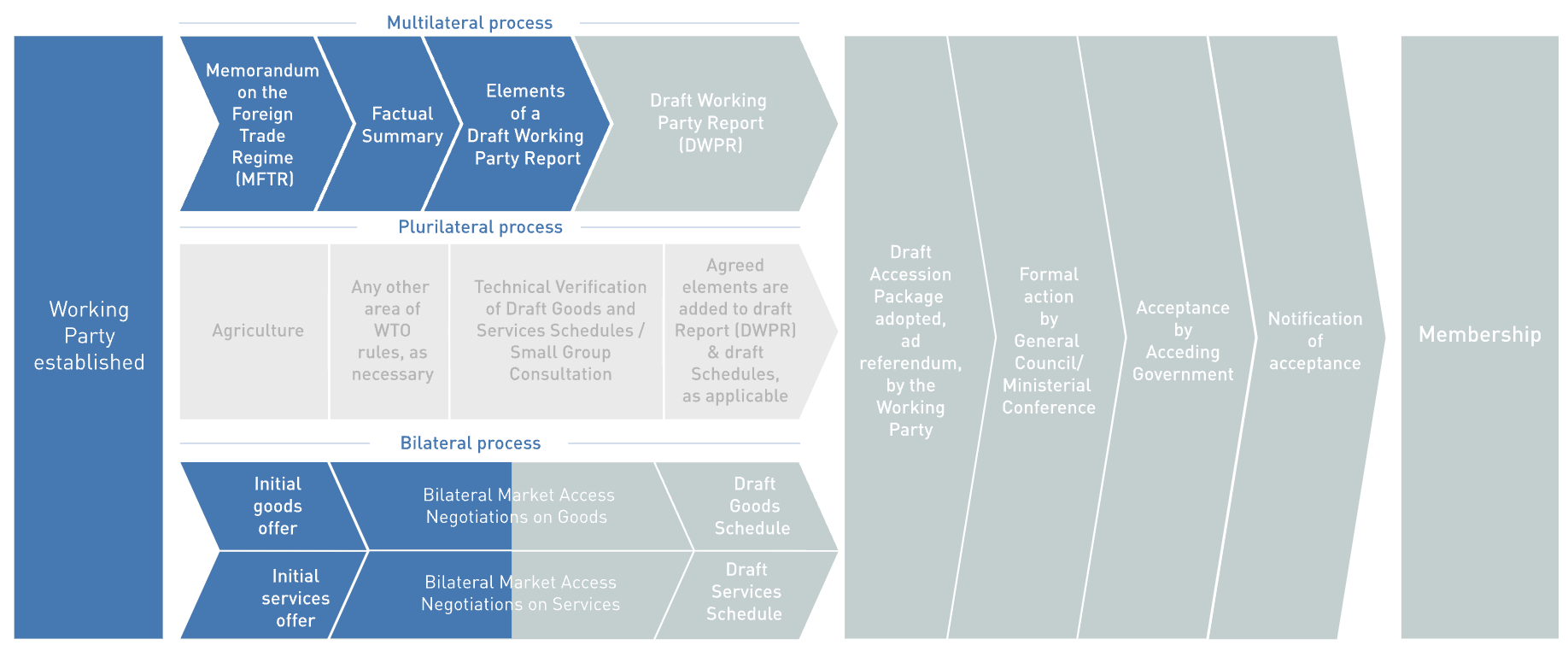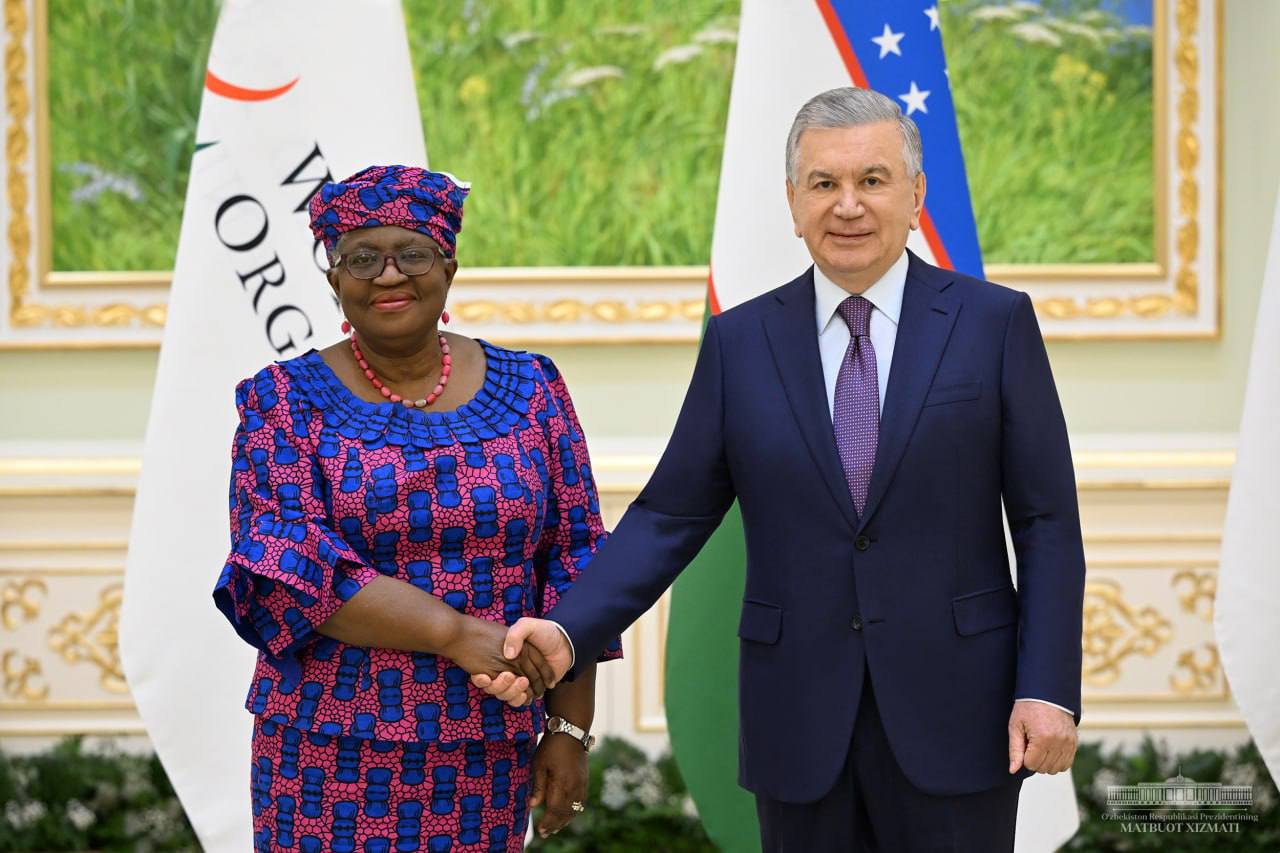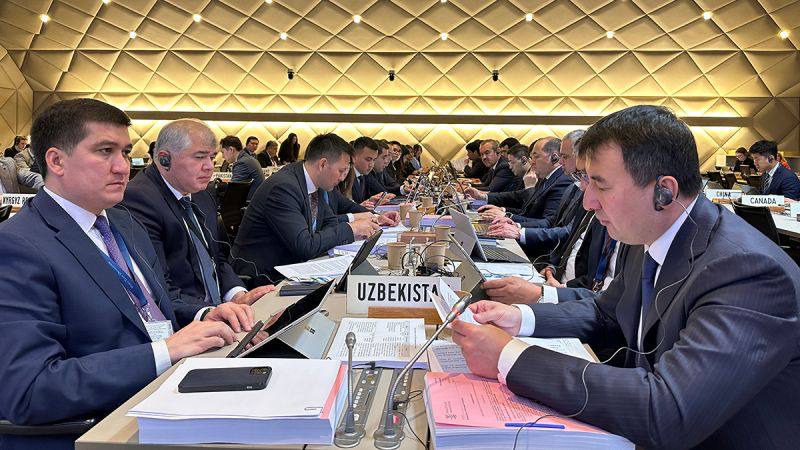Uzbekistan currently holds the record for the longest accession process in WTO history. The process began in 1994 and experienced some setbacks until 2017, with a renewed energy and purpose the country's path to accession has seen much acceleration in the last few years. Most recently with the announcement of presidential decree 85 removing some exclusive rights to various state-owned enterprises. One of the world's only double-landlocked countries, WTO Director-General Ngozi Okonjo-Iweala emphasized, in an interview with Daryo, that membership in the WTO and entering into the global trade chain would push the Central Asian state to become a land-linked country instead. The Director General also shared insights on Uzbekistan's WTO accession process, economic progress, and the country's future potential within the global trade organization.

Significant Progress and Economic Reforms
Uzbekistan has made substantial strides towards WTO membership, driven by strong macroeconomic management and comprehensive reforms. Okonjo-Iweala praised these efforts, noting, "I've seen a lot of very good changes since I was last here in 2010. Congratulations to the country." She highlighted the transformative benefits of WTO membership, such as increased trade and GDP growth, which have been evident in other member countries. "Members who have acceded to the WTO recently have experienced higher GDP growth rates," she added.
Addressing Concerns and Embracing Opportunities
Addressing concerns about potential drawbacks, such as those experienced by Kyrgyzstan, Okonjo-Iweala pointed out that these issues were often due to broader economic contexts, including the dissolution of the Soviet Union. "You've got to separate out the effects of what was happening due to that dissolution from joining the WTO. I think if you look now at the progress of the Kyrgyz Republic, you'll see that they've done so much better," she explained.
From Landlocked to Land-Linked
One of the major topics discussed was Uzbekistan's strategic location and the potential to transform from a landlocked to a land-linked nation. Okonjo-Iweala highlighted the significant infrastructure investments being made to improve connectivity. "The investments that are being made to improve infrastructure and linkages to the middle corridor should make Uzbekistan a land-linked country and not a landlocked country," she stated, emphasizing the importance of these developments for regional competitiveness.

High-Powered Team Leading Accession Efforts
Okonjo-Iweala praised the high-powered team leading Uzbekistan's accession efforts, including Deputy Prime Minister Khojaev and Minister Urunov. "The President has put together an excellent team. That makes a lot of difference," she noted. She referenced a recent working party meeting in Geneva on May 24th, where significant issues were tackled, and praised the President's decree aimed at aligning Uzbek legislation with WTO rules. "The decree really tackled many of the issues that WTO members were interested in," she added.
Strong Economic Performance and Future Prospects
When discussing Uzbekistan's current economic state, Okonjo-Iweala noted the country's strong performance and optimistic forecasts. "The economy is performing really well, with GDP growth forecasts in the 5% plus neighborhood," she said. She also mentioned improvements in inflation rates, stronger reserves, and manageable fiscal deficits. Okonjo-Iweala emphasized the importance of competition and efficiency for Uzbek enterprises, encouraging them to embrace new markets and technologies. "Uzbek enterprises should not be afraid of competition. They have to compete and be efficient," she stated.
Confidence in Uzbekistan's WTO Accession
Looking ahead, Okonjo-Iweala expressed confidence in Uzbekistan's ability to meet its WTO accession goals by 2026, aligning with President Mirziyoyev's objectives. "We are going to work very hard with Uzbekistan, with the team, to support them to deliver because we see a lot of hard work going on," she assured. She also emphasized the importance of communicating the benefits of WTO membership to the public to address fears of opening up the economy.
Recommendations for Continued Growth
In her recommendations for further strengthening Uzbekistan's economy, Okonjo-Iweala advised continued strong macroeconomic management and the exploitation of the country's green comparative advantage. "Uzbekistan should manage the macroeconomic framework extremely well, just as it's doing now. Exploit its green comparative advantage to create new industries, jobs, and develop the value chain right here so you can create jobs for all the young people," she recommended.

High-Level Meetings
On June 5th, President Shavkat Mirziyoyev met with WTO Director-General Ngozi Okonjo-Iweala. The meeting focused on practical measures for Uzbekistan's accession to the WTO. They also discussed cooperation in developing a "green" economy, enhancing e-commerce, and increasing exports of digital services. Okonjo-Iweala expressed her support for Uzbekistan's efforts to join the organization.
Watch the full interview here:
Comments (0)